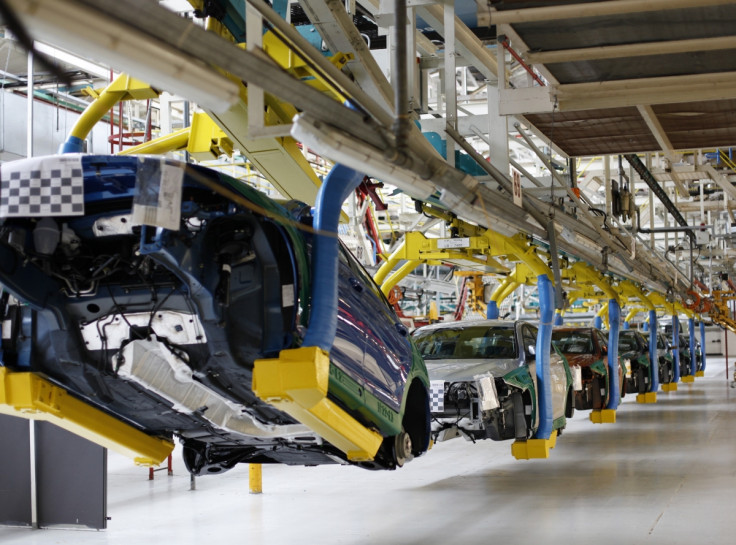CBI: Rebalancing UK Economy Must Be Budget 2014 Priority For George Osborne

Rebalancing the economy by encouraging business investment, manufacturing and exports should be the central priority of Chancellor George Osborne's budget in 2014, according to the Confederation of British Industry.
Osborne had set a target value of £1tn for UK exports by the end of the decade, something many economists now think is unattainable. He also said he would use his chancellorship to rebalance the UK economy away from its reliance on the services sector, which represents three quarters of GDP.
The UK economy is in recovery mode and grew by 1.8% during 2013, its fastest rate in six years. But this is largely driven by resurgent consumer spending and a revival of activity in the housing market. Business investment is sluggish and UK trade still runs a significant deficit.
"The economic recovery is taking hold with businesses and consumers both feeling more confident, but we must make sure that it really takes root and this can only be done through rebalancing," said John Cridland, director-general of the CBI, Britain's biggest business lobbyist.
"There are encouraging signs that business investment and net trade are on the up and now is the perfect time for the Government to get full-square behind it, particularly in the case of smaller firms.
"Above all, British businesses must have secure and affordable energy that enables them to compete internationally and keep jobs in the UK."
The CBI is recommending Osborne encourages retail investors to providing equity for firms by offering tax relief and freezing the carbon price floor. Additional recommendations include a tax on using fossil fuels to generate electricity, and bringing down energy bills.
British goods exporters have struggled to sell their wares abroad. Demand in key global markets slumped because of financial difficulties, such as the eurozone crisis which dragged down the continental European economy – the UK's biggest trading partner.
The Office for Budget Responsibility (OBR) forecasts net trade to be flat in 2014. Government export finance schemes, delayed by European Union state aid rules, also appear to have fallen flat.
Manufacturers were reporting higher volumes of output all through 2013 as the domestic economy recovered, but they are struggling against spiralling energy costs and weak international demand.
Osborne himself has admitted that the recovery is not yet sustainable.
"I've never been afraid to level with people about the hard truths," Osborne said in a speech at the Hong Kong Chambers of Commerce.
"I said that we have to go on dealing with our debt and our deficit – and we have no choice but to do so. I said recovery was not enough, we needed to avoid the mistakes of the past.
"So I'm now the first to say that the recovery is not yet secure and our economy is still too unbalanced."
Mark Carney, governor of the Bank of England, has said he will not tighten monetary policy in the UK until he thinks the recovery is sustainable and balanced, which he does not yet think it is.
© Copyright IBTimes 2025. All rights reserved.






















